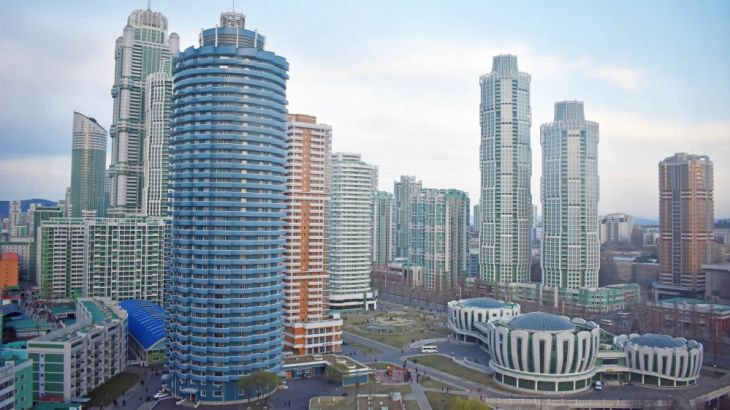
North Korea from up close: The self-reliance philosophy
Al Jazeera’s diplomatic editor given access to Pyongyang, from where he reports on isolated nation’s governing ideology.
Pyongyang, North Korea – This is certainly the cleanest, the most orderly and probably the most controlled place I have ever visited.
During rush hour here, traffic is light and the roads are quiet, although all of them a little bumpy.
Keep reading
list of 4 itemsNorth Korea says Kim Jong Un oversaw test of new hypersonic weapon
North Korea claims progress in development of hypersonic missile
North Korea’s Kim oversees ‘super-large’ rocket launcher drills
Pyongyang’s portraits and statues tell the story of an isolated nation run by three men, all from one family.
The grandfather and the country’s founder was Kim Il-sung; the father was Kim Jong-il; and the son is the current leader, Kim Jong-un, who we were told is too modest to have mosaics made of him.
Nevertheless, he is everywhere on the state-controlled media – on television and in the newspapers.
In the centre of this city is the tallest landmark, the Juche Tower.
Juche, or “self-reliance”, is the governing principle of this nation of 25 million people.
All about self-reliance
Our guide explained: It is not about self-reliance of the individual but instead that individual Koreans must do all they can to make their nation self-reliant.
For years, North Koreans have been told the nuclear programme is something that will keep their country strong, and that the US is their mortal enemy.
|
|
Both are messages that will now need modification as talks approach.
Under some of the stiffest international sanctions ever imposed, North Koreans say juche is the answer.
In the subway, trains inherited from East Germany are growing old.
A handful of new carriages were produced in North Korea, including some seats designed ostensibly by Kim Jong-un himself.
It seems the leader takes a direct interest in many areas of national life.
He has made a visit to the main shoe factory.
Total respect
At the plant producing the Korean national dish kimchi – made of pickled vegetables – we were told the air-conditioning system was supervised by the supreme leader.
And at an old people’s home, we were told Kim Jong-un was the architect of a staircase.
Such benevolence is of course matched by total respect.
Kim Jong-un has never granted an audience to the international media. He has never given an interview.
I got about as close as an outsider can get to him: I was attending a performance of a visiting Chinese ballet company in Pyongyang when Kim Jong-un entered the theatre.
The crowd clapped continuously – a standing ovation – with cries of “Hooray! Hooray! Hooray!”
The clapping only stopped when Kim Jong-un himself signalled with his hands.